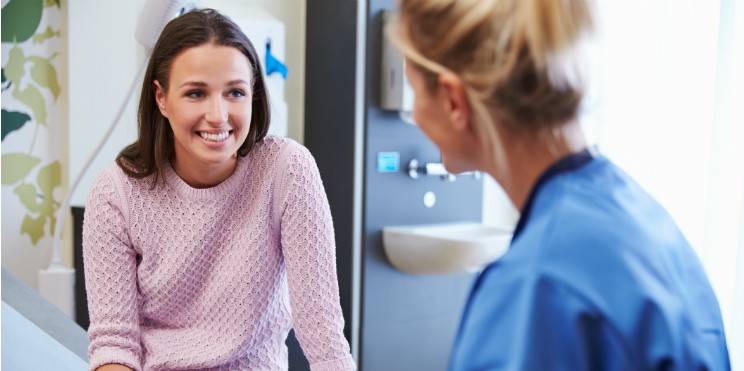Having the recommended screenings through the course of your life can help you to remain healthy and worry-free.
As a woman, your health depends on a number of factors: healthy eating habits, regular exercise, and managing stress, among others. You should also have routine health screenings for women, so any potential health problems can be identified early. Health screenings make managing your health easier, simpler, and safer.
In part one of our two-part series, three crucial tests were discussed; we highlighted the importance of a pap smear, mammograms, and blood glucose testing. Your doctor will evaluate your personal health factors and counsel you in order to adapt these lists to your personal needs.
1. Cholesterol Testing
The cholesterol test (also called a lipid profile or lipid panel) is a blood test to measure the amounts of cholesterol and triglycerides in your blood. This helps your doctor determine your risk of plaque build-ups in your arteries. Such accumulations can cause narrowing or blockages in arteries throughout the entire body (called atherosclerosis). High cholesterol is a significant risk factor for developing heart disease.
It is recommended that women start having cholesterol screenings between ages 20-45, and every five years afterward, if your test is normal. You should be tested more often if you are over age 55, or if you have risk factors for heart disease including smoking, sedentary lifestyle, high fat diet, if you are overweight, or if you have a family history of heart attacks or high cholesterol.
2. Colon Cancer Testing
Colorectal cancer is one of the most common forms of cancer for people in the United States. Colorectal cancer deaths have been reduced by using colonoscopy and another test, called a fecal occult blood test, which checks for blood in feces. The colonoscopy is performed with a flexible scope which looks for cancer before an individual has any cancer symptoms. Finding cancer or abnormal tissue early may make treatment easier. Before symptoms appear, cancer may already have started to spread. So, the time to have colon cancer screening tests is while you do not have cancer symptoms.
3. Bone Density Testing
Testing bone density helps medical professionals calculate your risk of osteoporosis and breaking bones. Bone density tests use X-rays for measuring your grams of calcium and bone minerals. Bone density testing identifies declines in bone density before bone fractures occur, confirms the diagnosis of osteoporosis, and helps in monitoring during osteoporosis treatment.
Osteoporosis testing is most important for women 65 years of age and older. Routine screening of bone density is not recommended for women younger than that, unless they have other risk factors. Your doctor may recommend bone density testing prior to age 65 if you have certain risk factors including a medical history of a fragility fracture or medical causes of bone loss.
Other Health Screening for Women
- The human papilloma virus (HPV) vaccine is essential for women between ages 18-26.
- Routine dental exams are important for women’s heart health.
- Skin examinations as part of your annual physical exam are basic healthcare for women.
- Having your body mass index calculated and updated routinely is an important measure for monitoring and preventive health care for women.
- Have your blood pressure taken at least every 3 to 5 years.
- Eye exams can reveal hidden health issues.
- An annual general physical exam is recommended for all girls and women.
For More Information
Contact the Woman’s Clinic by calling 501-664-4131 for additional information about health screenings for women in Arkansas, or to schedule an appointment for a consultation with a Little Rock gynecologist.

